The Hydrogen Industry Forum of the China EV100 Forum (2022) was successfully held on the afternoon of March 27, 2022 at the Diaoyutai State Guesthouse in Beijing. This hydrogen industry forum focused on the themes of "Hydrogen Energy Moving towards a New Stage of Demonstration at Scale" and "How Financial, Tax, and Financial Policies Can Support the Development of the Hydrogen Industry in Coordination." It discussed the potential applications and commercial pathways of hydrogen energy in diversified scenarios such as transportation, industrial decarbonization, energy storage, and construction. The forum also explored how key technologies in the industry chain can innovate and break through, investigated replicable, scalable, and sustainable business models, and considered how financial, tax, and financial policies can support the rapid development of the hydrogen industry.
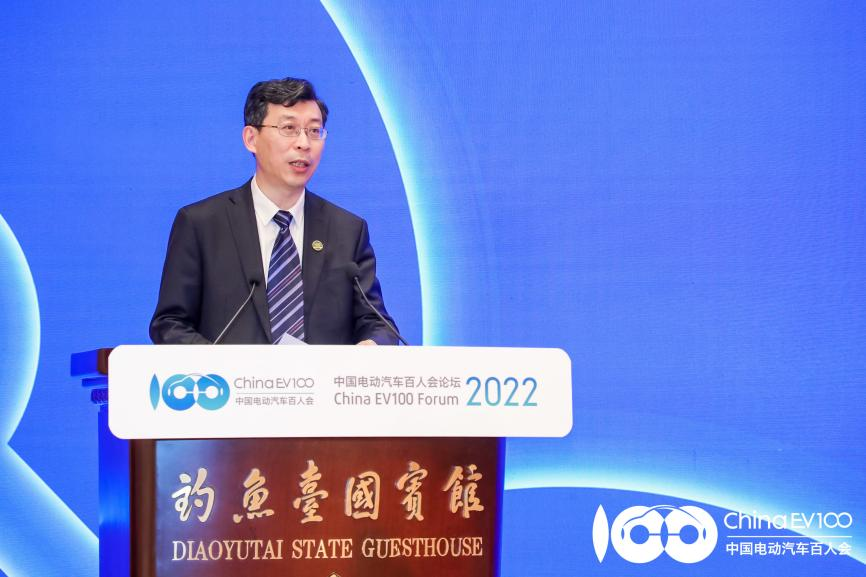
(Figure 1 Zhang Yongwei, Vice Chairman and Secretary General of China EV100)
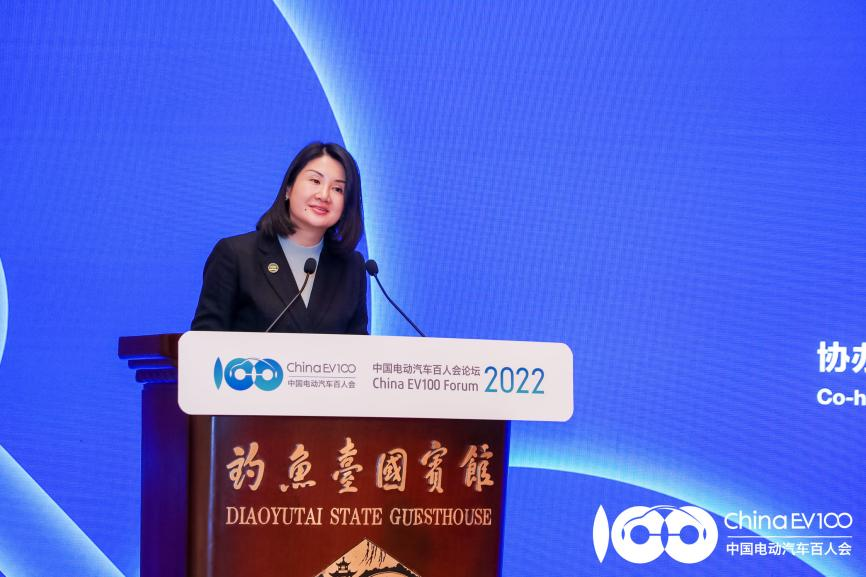
(Figure 2 Zhang Zhen, director of the Hydrogen Energy Center of China EV100)
The forum was chaired by Zhang Zhen, Director of the Hydrogen Center of the China EV100, and addressed by Zhang Yongwei, Vice Chairman and Secretary-General of the China Electric Vehicle One Hundred People's Club. Keynote speeches were delivered by a number of prominent figures, including Chen Qingquan, academician of the Chinese Academy of Engineering; Qian Ting, Managing Director of the Efficient Natural Resources Department of Zhongxin Wanfeng; Chai Maorong, Chief Technology Officer of Hydrogen Technology Development Co., Ltd. of China Huaneng Group; Wang Hewu, Associate Researcher of Tsinghua University and Vice Secretary-General of the China Electric Vehicle One Hundred People's Club; Yu Min, Executive Deputy General Manager of Beijing Yihuatong Technology Co., Ltd.; Wang Naixiang, Chairman of Beijing Green Exchange; Shi Yingzhe, Deputy Director of the Securities and Futures Research Institute of Central University of Finance and Economics; Yang Junkai, Managing Director of Agricultural Bank Financial Asset Investment Co., Ltd.; Zhou Yuxuan, General Manager of Enze Fund; and Chen Zhaonan, General Manager of Shell Hydrogen Business Unit for the Asia-Pacific region.
1. Theme of the first half: Hydrogen energy towards a new stage of scale demonstration
First, Zhang Yongwei, Vice Chairman and Secretary-General of the China EV100 delivered a speech. China's hydrogen energy industry development is underpinned by two significant factors: the ongoing rise in global energy prices due to changes in the global landscape, and the recent release of the "Medium- and Long-Term Plan for the Development of the Hydrogen Energy Industry (2021-2035)" which sets clear goals and directions for the industry. Looking ahead, there are five key points worth considering.
The first point is how to achieve a balance between the green and economic aspects of hydrogen energy at the supply end. The second point revolves around how businesses can achieve profitability through continuous technological and business model innovations on the industry side. The third point focuses on ensuring that application demonstrations are sustainable and replicable, a matter that demo cities and participating companies need to carefully study and consider.
The fourth point involves advancing the integrated development of new types of infrastructure such as hydrogen refueling, charging, battery swapping, gasoline, and gas facilities, an issue of shared concern for energy companies, charging station operators, and hydrogen facility operators. Lastly, on the financial side, the question of how to demonstrate a green premium stands as an important measure to drive hydrogen energy development forward.
Addressing how to make hydrogen energy economically feasible, profitable for businesses, sustainable in application demonstrations, integrative in infrastructure, and conducive to premium investments and finance will be crucial in propelling hydrogen energy towards deeper and higher quality development.
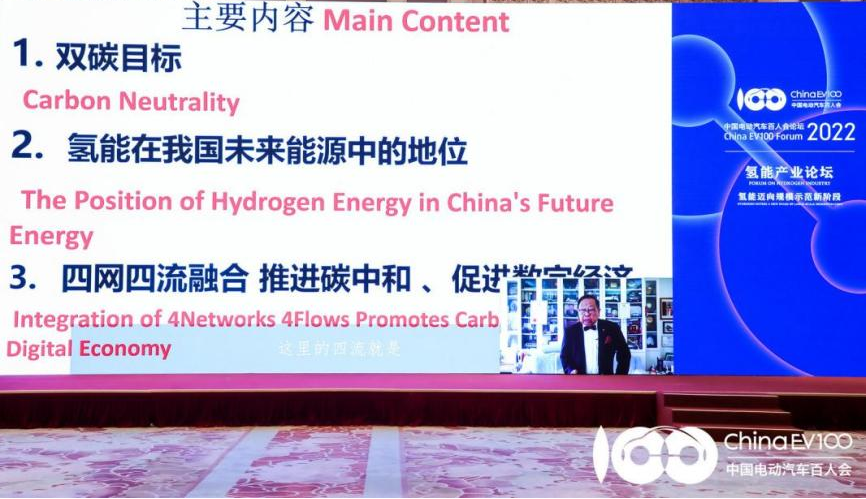
(Figure 3. Chen Qingquan, Academician of the Chinese Academy of Engineering)
Starting from the dual-carbon goal, Academician Chen Qingquan analyzed the position of hydrogen energy in China's future energy and the role of the integration of four networks and four streams in promoting carbon neutrality and promoting digital economy, and pointed out the significance of the integration of hydrogen energy and "four networks and four streams" in promoting carbon neutrality. By linking the automobile revolution, energy revolution and information revolution, as well as the integration of "four networks and four streams", the energy intensity and CO2 intensity can be reduced to boost the "carbon neutrality".
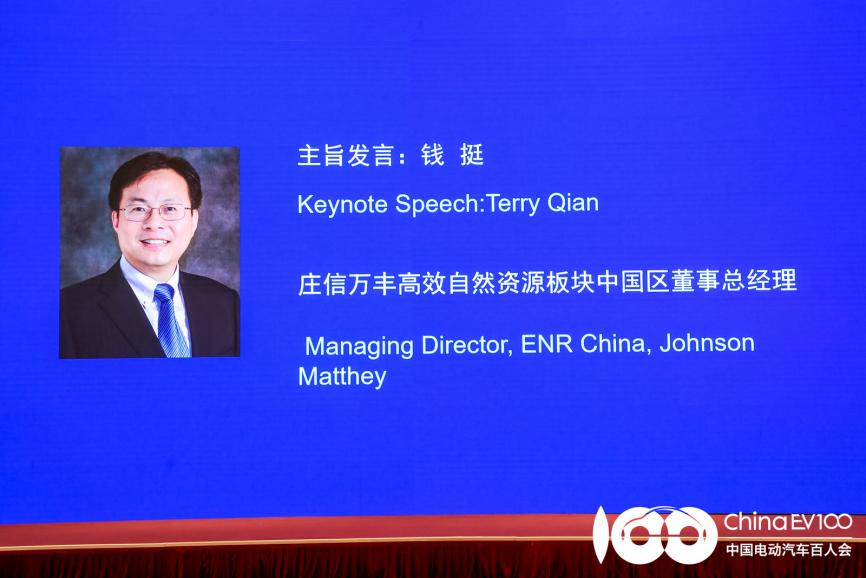
(Figure 4 Qian Ting, Managing Director of Johnson Johnson Wanfeng Efficient Natural Resources Division in China)
Qian Ting, managing director of Johnson Johnson Wanfeng Efficient Natural resources sector in China, pointed out that from the perspective of the source reform of the energy structure, the absolute proportion of renewable energy, especially wind power and photovoltaic power, will achieve a substantial growth. From the perspective of cost, the cost of photoelectric wind power in the western and northern regions has been lower than that of thermal power. In the future, the cost and price of green power will be further reduced. Comprehensively promoting electrification is an inevitable choice to realize the decarbonization of the energy consumption end and establish a green low-carbon cycle system. As an industrial raw material or reducing agent, clean hydrogen is an important starting point for the chemical industry, steel, non-ferrous metal and cement industries to achieve deep decarbonization.
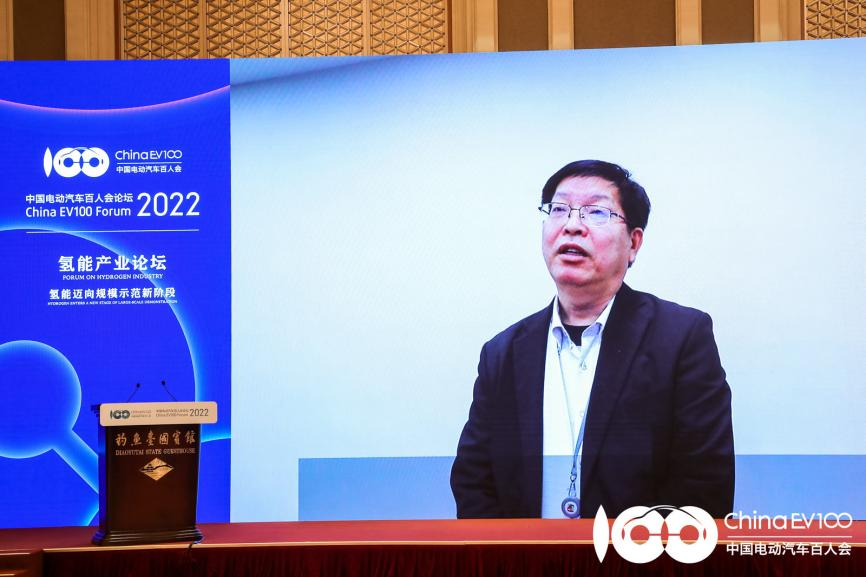
(Figure 5 Chai Maorong, Chief Technology Officer of Hydrogen Energy Technology Development Co., LTD., State Power Investment Group)
National electric investment group hydrogen technology development co., LTD., chief technology officer Chai Maorong pointed out that during the games in Beijing, the national electric hydrogen company in yanqing division, Beijing division invested nearly 200 vehicles, including yanqing division 50, Beijing division 90,50 overall backup, carrying "teng" hydrogen fuel cell power system of hydrogen bus actively practice green games concept, provides the all-weather, all-round zero carbon power travel security. The State Power Investment Hydrogen Energy Company has mastered all the basic core technologies of catalyst, gas diffusion layer, proton exchange membrane, membrane electrode, bipolar plate and other basic core technologies.
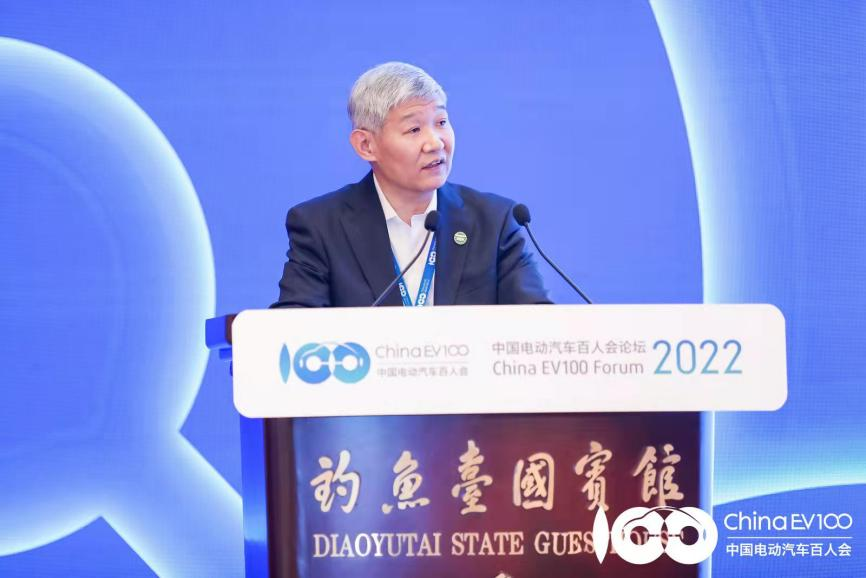
(Figure 6 Wang Hewu, Associate Researcher of Tsinghua University and Deputy Secretary-general of China EV100)
Wang Hewu, an associate researcher at Tsinghua University and deputy secretary general of the China Electric Vehicle Committee of 100, analyzed the milestone stage of the development of hydrogen fuel cell vehicles. By 2025,50,000 to 100,000 vehicles and the number of hydrogenation stations will exceed 1,000. In 2035, there will be 800,000 to 1 million vehicles, and the number of hydrogenation stations will exceed 5,000. At the same time, Deputy Secretary-General Wang Hewu mainly introduced the promotion of Hebei fuel cell vehicle demonstration city cluster with Zhangjiakou as the core.

(Figure 7 Min Min, Executive Deputy General Manager of Beijing Yihuatong Technology Co., Ltd.)
According to the analysis of Beijing Yihuatong Technology Co., Ltd., continuous technological innovation is the key to maintaining industrial competitiveness and promoting industrial progress, and rapid cost reduction is the top priority to ensure the healthy and sustainable development of the industry. We should explore the evaluation criteria of hydrogen fuel cell application, give financial attributes to hydrogen energy and fuel cell projects, and stimulate the demonstration of social active application.
2. Signing ceremony of China EV100 Hydrogen Center and Agora Energy Transition Forum

(Figure 8 Marcus Stegenberg, Director General of the Agora Energy Transition Forum)

(Figure 9 Liu Xiaoshi, Executive Deputy Secretary-General of China Committee of 100 for Electric Vehicles)
At the Hydrogen Industry Summit forum, China Electric Vehicle 100 Hydrogen Energy Center and Agora Energy Transformation Forum held a signing ceremony. Marcus Stetgenberg, Director-general of the Agora Energy Transformation Forum, and Liu Xiaoshi, Executive Deputy Secretary-general of the China Electric Vehicle Committee of 100, delivered speeches. Marcus Stegenberg introduced that Europe and China have great potential in green hydrogen energy economy, and should deeply exchange and learn from each other in the research of hydrogen energy strategy. Agora Energy Transformation Forum looks forward to further cooperation with the Hydrogen Energy Center. Liu Xiaoshi, Executive Deputy Secretary-General, mentioned that China and Germany are all-round strategic partners. The two countries have conducted fruitful cooperation in many fields, such as transportation, automobile manufacturing, new energy and sustainable development, and achieved fruitful results. China electric car will hydrogen center and Agora energy transformation BBS will carry out high level of international exchanges and cooperation, support the two sides in Germany and China in the field of science and technology and industry research and training activities, the two sides will also jointly promote the two countries in hydrogen, energy transformation, carbon neutral in the field of research and industrial cooperation.
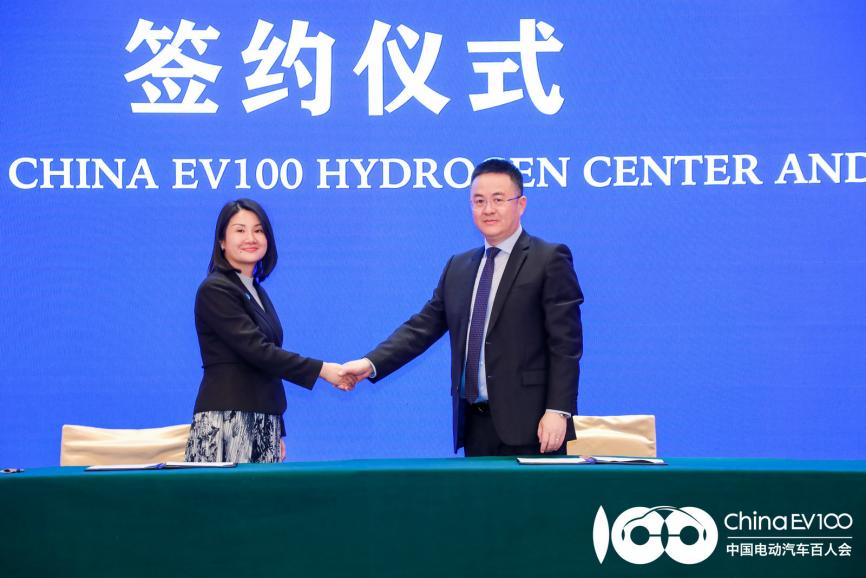
(Fig. 10. Signing Ceremony)
Tu Jianjun, China project leader of Agora Energy Transition Forum, and Zhang Zhen, director of the Hydrogen Energy Committee of China Electric Vehicle 100, signed the cooperation agreement. The Agora Energy Transition Forum is an independent energy transition think tank with more than 100 experts working in decarbonizing of energy systems around the world. Headquartered in Berlin, Germany, it has partners in 25 countries, including China.
3. Theme of the second half: How to coordinate financial and fiscal policies to support the development of hydrogen energy industry
Hydrogen energy has a green premium due to its decarbonization characteristics, and will become a high-quality asset carrier supported by green finance in the future. The theme of the second half of the hydrogen energy industry forum is: how to coordinate financial and fiscal policies to support the development of hydrogen energy industry. The Committee of 100 Hydrogen Energy Center and Central University of Finance and Economics jointly launched a research report entitled "Building a Hydrogen Financial System Consistent with the" Double Carbon "goal". Professor Shi Yingzhe, deputy director of the Institute of Securities and Futures of Central University of Finance and Economics, made a guiding speech and told the key points of the report.

(Figure 11 Shi Yingzhe, Deputy Director of the Securities and Futures Research Institute, Central University of Finance and Economics)
Professor Shi Yingzhe proposed to build a "1 + 2 + 4 + N" hydrogen finance policy system through the strategic guidance, the fiscal and tax policies of the public sector, and the precise support of green finance. We should give full play to the supporting role of the local science and technology financial system in the research and development of hydrogen industry-related technologies, and give full play to the leverage effect of financial funds on social capital investment. We will promote the carbon market to the development of hydrogen energy, improve the construction of hydrogen financial infrastructure, and strengthen the construction of hydrogen digital development and sharing mechanism and international cooperation.

(Figure 12 Wang Naixiang, Chairman of Beijing Green Exchange)
Wang Naixiang, chairman of Beijing Green Exchange, shared the thoughts on supporting the development of hydrogen energy industry in the four business sectors of environmental rights and interests trading, green public service, low-carbon development service and green financial service. In the environmental rights trading sector, explore the possibility of developing the carbon emission reduction actually formed by the hydrogen industry into CCER and trading through green exchanges. Green public service sector, explore the effective application scenarios of hydrogen energy industry in the field of transportation. Low-carbon development service sector, together with professional institutions to jointly study and develop carbon emission reduction accounting standards related to the hydrogen energy industry. Green financial service sector, jointly build the hydrogen energy industry green project database and enterprise carbon account, and serve the green investment and financing of the hydrogen energy industry.

(Figure 13 Yang Junkai, Managing Director of ABC Financial Asset Investment Co., Ltd.)
Agricultural bank financial assets investment co., LTD., managing director of Yang Junkai pointed out that the agricultural bank investment continues to promote the hydrogen industry tracking research, efforts to guide and drive more social capital to support the hydrogen system, storage, transport, with the hydrogen chain safety technology development and application, form independent controllable hydrogen advanced technology, proton exchange membrane fuel cell technology, core components and key equipment, on the major product demonstration application and industrialization development financial fu.

(Figure 14 Zhou Yuxuan, General Manager of Enze Fund)
Zhou Yuxuan, general manager of Enze Fund, mentioned that in terms of investment layout, Enze Fund focuses on the industrial chain, builds an ecosystem, and creates "H chain H circle and E chain E circle". E-chain and E-circle is to build a mobile energy service ecosystem around the electric vehicle industry chain. Around the power battery upstream materials, battery assets to operate. H chain H circle, is along the hydrogen energy supply chain, the layout of water electrolysis of hydrogen production, hydrogen energy storage, fuel cell stack and upstream materials to expand. In the layout of the hydrogen energy field, the application of the transportation field is only one aspect, and the deep decarbonization of the industrial field through the hydrogen energy is a broader scenario.

(Figure 15 Chen Zhaonan, General Manager of Shell Hydrogen Energy Division)
Chen Zhaonan, general manager of the Asia Pacific region of Shell Hydrogen Energy Division, pointed out that the application of hydrogen energy in medium and heavy vehicles has deep potential. The technologies of hydrogen fuel cell heavy trucks, hydrogenation stations and electrolytic cells are not yet mature, so the importance of "group heating" should be fully reflected. The combination of green hydrogen preparation with renewable power, transportation application and industrial decarbonization is one of the mainstream business models of green hydrogen industry chain in the future. Hydrogen production from offshore wind power is one of the inevitable directions for the future development of green hydrogen industry, and also the main exploration direction for the development of sustainable hydrogen supply in coastal areas in China. Cost is one of the main obstacles to the large-scale promotion of green hydrogen, and policy support is an important basis to ensure the competitiveness of green hydrogen.
Hydrogen in the future
With the determination of the hydrogen national strategy, hydrogen key technology material innovation breakthrough, in 2025, we believe that with the continuous improvement of the hydrogen industry ecological system, the fiscal and taxation financial policy tools constantly assigned and positive incentives, the development of the hydrogen industry will be fully enter a new stage, truly become the strong support of double carbon goals in our country.


